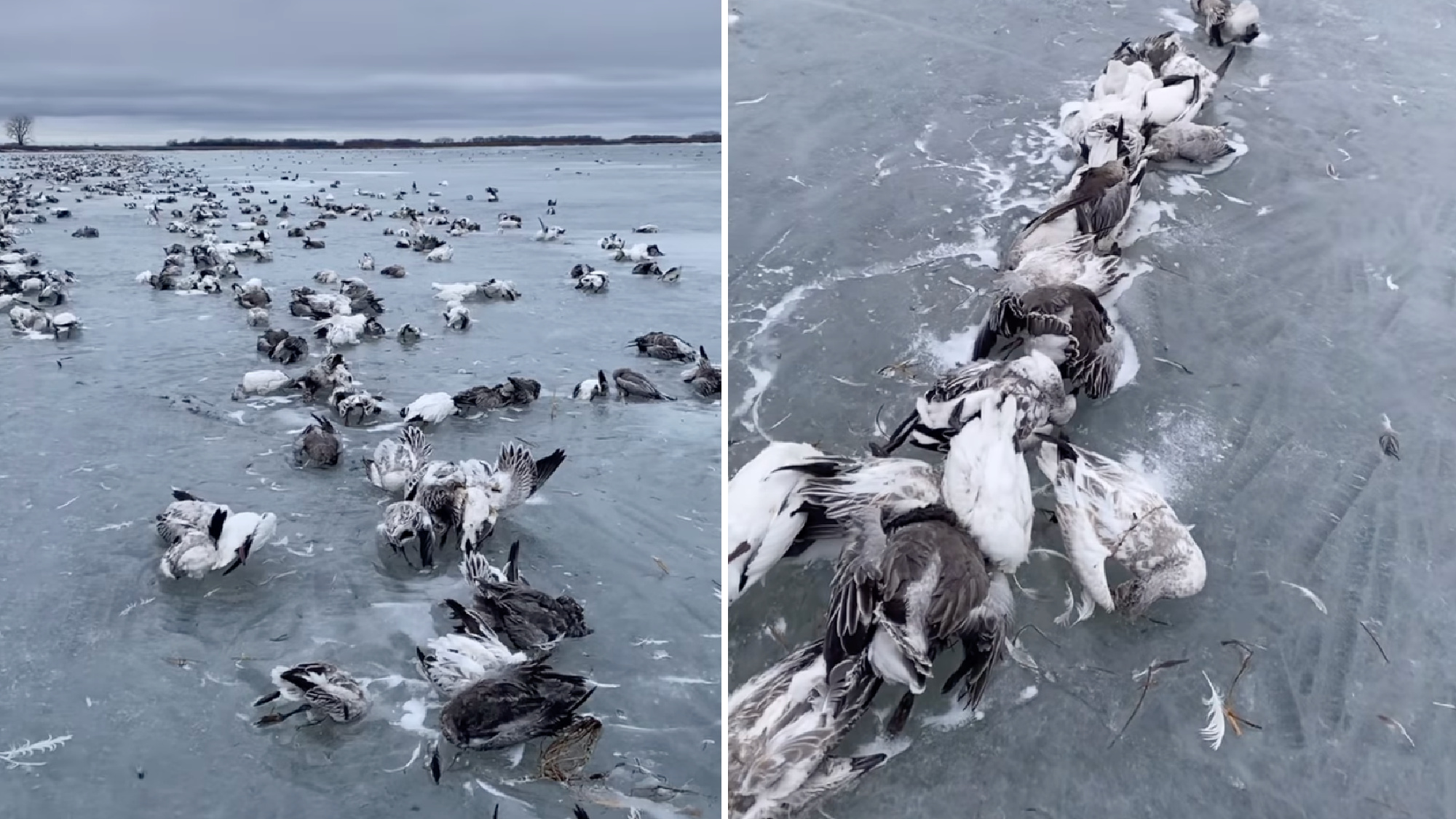When Nate Phinney packed up his ice fishing gear in Watertown, South Dakota and set out for a nearby lake on Feb. 9, he wasn’t expecting the scene he found when he arrived — some 1,000 to 1,500 dead snow geese piled up and frozen into the lake’s surface. The carnage that he filmed at the scene was jarring enough to amass millions of views on social media.
Phinney has been fishing and hunting in this area for years, and the sight of dead birds frozen into the water wasn’t exactly a new one, he tells Outdoor Life.
“Usually, those geese would be spread out all over the lake, and you wouldn’t see them until spring because they’d be covered up by snow,” Phinney says, explaining that die-offs from avian influenza during recent migrations have left lots of dead geese scattered across the state. “Except we don’t have any snow this year, and the lakes sort of thawed back out in early December, so you get that effect of windrows of dead geese on one side of the lake. It’s kind of a shock.”
Phinney is friends with waterfowler Sean Weaver, whose over 44,000 Instagram followers were equally shocked by the video when Weaver posted the footage to his Instagram account. The video has since racked up 2.4 million views.
Weaver witnessed similar scenes back in early December when the migration came through eastern South Dakota, he tells Outdoor Life. As he explains in the caption of Phinney’s video, these birds — mostly juvenile snows — probably died around December and have been stuck in the ice for months. That hypothesis is supported by the fact that South Dakota lakes have been mostly frozen since then and the bulk of the northward spring migration hasn’t reached the area yet.
“This is just one lake that went through a die-off on a roost in December,” Weaver says. “I recorded several lakes in early December with huge die-offs like this. This is not an isolated incident. There were dozens, if not hundreds, of lakes in eastern South Dakota that had dead snow geese on them in early December.”
The new strain of avian influenza, which has wreaked havoc on wild bird populations, domestic poultry, and even trickled into mammal species, remains “uncharted territory,” according to Weaver. That’s because no one really understands the breadth of avian influenza’s impact on wild bird populations yet — especially because the death toll is constantly rising.
“When we’ve had bird die-offs in the past from cholera or botulism, they’re these isolated spots and isolated incidents. It’s not continent-wide die-offs of snow geese,” Weaver says. “Avian influenza has been running through the wild population for two years now. It has always been endemic to wild birds but it’s never been deadly to wild birds, at least nowhere near this capacity. We don’t know what the ramifications of something like this will be with bird populations, and frankly, no one has ever tackled quantifying and calculating it.”
Despite the lack of grasp on the lasting impacts of avian influenza on continent-wide waterfowl numbers, the immediate impact is glaringly obvious to any waterfowl hunter, bird watcher, ice angler, or passerby who takes a closer look at what’s frozen into the lake’s surface. It’s not a pretty sight.
“That’s the most dead snow geese I have ever seen,” Phinney says. “To see that many dead birds in one scene and knowing that’s mostly from disease, it’s eye-opening.”

